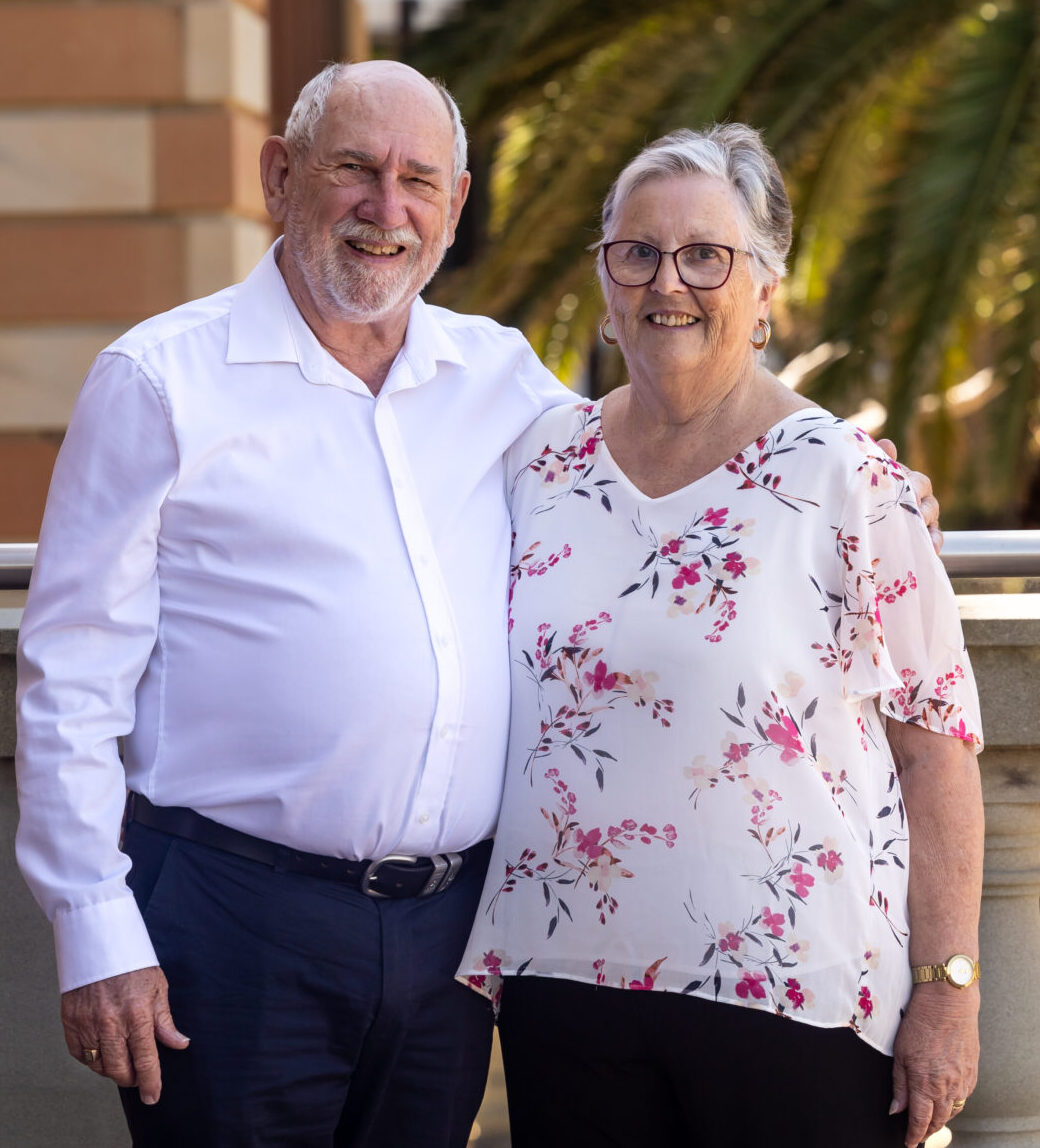
Charlie Sanders, diagnosed with inoperable kidney cancer, participated in the TROG 15.01 FASTRACK II Clinical Trial, aiming to control the cancer using high-intensity radiation therapy while minimising kidney function impact.
Charlie Sanders, a 76-year-old resident of Rutherford, New South Wales, found himself thrust into the world of medical uncertainty when a routine ultrasound for aneurysms unexpectedly revealed a troubling growth on his kidney. Concerned, his GP wasted no time in referring him to a urologist for further investigation. Regular monitoring revealed that, the haze on Charlie’s kidney was continuing to grow and eventually reached a worrying size of 53 millimetres. To make matters more challenging, Charlie’s previous medical history meant that he was not a candidate for surgery.
Feeling like he was living with “a ticking time bomb”, Charlie’s hope for a solution emerged when he was put forward as a candidate for the TROG 15.01 FASTRACK II Clinical Trial. “I was devastated to find out that the shadow on my kidney was inoperable, and then I found out about FASTRACK II trial which gave me new hope for treatment” he reflected.
Led by Prof Shankar Siva, the aim of the study was to utilise high intensity radiation therapy technology to control the cancer within the kidney for patients where surgery is not an option. It would also monitor side effects, including potential to minimise effect on kidney function therefore avoiding ongoing dialysis. With little hesitation, and the full support of his wife Dianne, Charlie signed up for the trial.
A whirlwind of consultations, paperwork, and procedures marked Charlie’s journey. From the initial biopsy to the series of three short treatments over the course of just one week, Charlie took each step in his stride. He soon found that side effects and disruption to his life were extremely minimal compared to what he had anticipated “With only three treatments on Monday, Wednesday and Friday of the same week, I was back at work and getting on with my day-to-day life” Charlie reflected in amazement.
After treatment, as the monitoring progress, Charlie continued to charter new territory. His consultations with Prof. Jarad Martin, the overseeing physician, revealed the ultimate disappearance of the tumour that once threatened his well-being.
Now, seven years on, Charlie stands as a testament to the trial’s success, his scans displaying 100% absence of the once-menacing growth.
The FASTRACK II results have been astonishing with many of trial participants experiencing no recurrence and all with minimal impact on their lives. This trial is practice changing, “Our study demonstrated that a novel treatment delivered in an outpatient setting is able to achieve unprecedented efficacy for patients with inoperable kidney cancer,” said trial chair Prof. Shankar Siva, “Thanks to Charlie and others like him, future patients with inoperable kidney cancer will now have access to SABR as standard of care in centres around the world.”
Charlie has expressed his gratitude not only to Prof. Siva and the medical team but also TROG Cancer Research for developing, sponsoring and coordinating FASTRACK II, as he acknowledges that these efforts orchestrated the trial that changed his life. Despite the uncertainty and challenges he faced, Charlie’s resilience remained steadfast throughout. The trial not only provided him an alternative from surgery but also preserved his quality of life, both during treatment allowing him to continue his daily activities without interruption and thereafter; with minimal damage to his kidney, Charlie has avoided any potential ongoing dialysis treatment.
As he looks back on his journey, Charlie’s message resonates with gratitude and hope. The TROG 15.01 FASTRACK II Clinical Trial offers a beacon of hope for countless others facing similar diagnosis. Through his participation, Charlie had become a pioneer, contributing to the advancement of medical science for generations to come.
TROG Cancer Research is a registered charity in Australia, holding the Deductible Gift Recipient (DGR) status, which means that donations over $2 are tax-deductible.